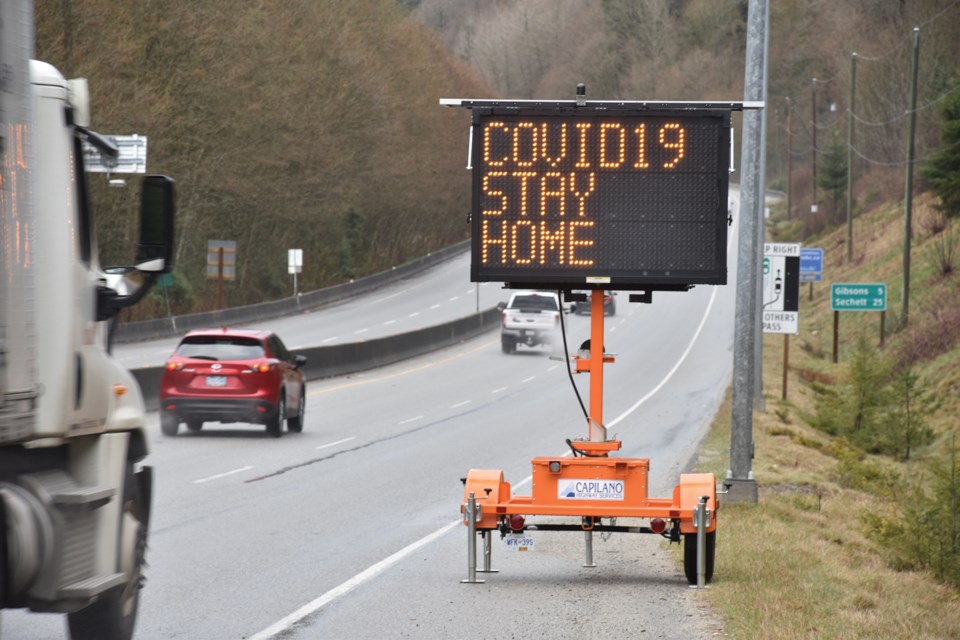Operators earning money from short-term rentals during the COVID-19 crisis are similar to hoarders and exploitive resellers and the province must put an end to it, says Gibsons Mayor Bill Beamish.
“I view this practice of profiting during the Provincial Health Emergency as being similar to hoarding of supplies or reselling sanitation products and we need for it to be stopped,” he said in a letter last week to Municipal Affairs and Housing Minister Selina Robinson.
Beamish implored the minister and provincial health officer to take a “strong position” and limit short-term renting to the health care workers and emergency service responders needed to relieve doctors, nurses and RCMP staff.
“During this health crisis and Provincial Emergency, visitors should not be in our community putting our residents at risk,” he said, before calling short-term rentals “an unreasonable and preventable risk to the residents of Gibsons and other communities on the Sunshine Coast.”
As of March 30, the province had not indicated the practice would be banned.
When asked whether any changes could be coming, a statement from the province’s Joint Information Centre laid out the public health restrictions already in place, such as the closing of Canada’s border to non-essential crossings and limiting international travel. Bars, nightclubs and personal service establishments have been closed and the province is urging people to “stay home as much as possible and remain physically distant from others.”
Those points were also repeated to Sechelt Mayor Darnelda Siegers when she asked Vancouver Coastal Health deputy chief medical health officer Dr. Mark Lysyshyn in a March 26 briefing to respond to similar concerns about short-term rentals raised by constituents. People had complained of large gatherings affiliated with rentals. In one scenario, a group of 10 adults and six children were seen congregating at a beach, said Siegers. “We don’t know how to deal with that.”
In response, Lysyshyn said: “People are allowed to come to the Sunshine Coast,” adding there have been no restrictions placed on short-term rental operators and cleaning procedures should be adequate to prevent spread of the virus between guests. He suggested directors follow up with other levels of government.
In the meantime, public health orders apply only to gatherings of more than 50 people, said the doctor, and social distancing of two metres is encouraged, though “not everybody is going to follow it and in order to have a good response to this pandemic we actually do not need everybody to follow it.”
And despite decisions by other municipalities and local governments to close outdoor areas to promote social distancing, Lysyshyn said public health officials believe the majority of transmission occurs in indoor environments.
By closing those areas, “you actually encourage them to be in places where transmission will occur more,” he said. “We think it is appropriate for people to be outside in small groups for small amounts of time, and so we have not been recommending that they close outdoor spaces.”
Sunshine Coast Tourism has also been on the receiving end of complaints from residents about short-term rental operators.
During a March 26 Sunshine Coast Regional District committee meeting, executive director Paul Kamon said the organization is discouraging travel through messaging on its website, and suggested local governments publish a joint communication to residents, “basically sending the message … that protecting the community is a priority and all travel should be restricted.”
Anti-tourism messaging from the Sunshine Coast’s tourism organization has also resulted in “pushback from members who feel we shouldn’t be telling people not to come here, and that we should be promoting right now,” said Kamon, adding he disagrees with that position “wholeheartedly.”
“At the end of the day there’s only so much you can do. You can’t physically stop somebody from doing those things, but you can certainly put the messaging out so the community understands where our priorities are.”



